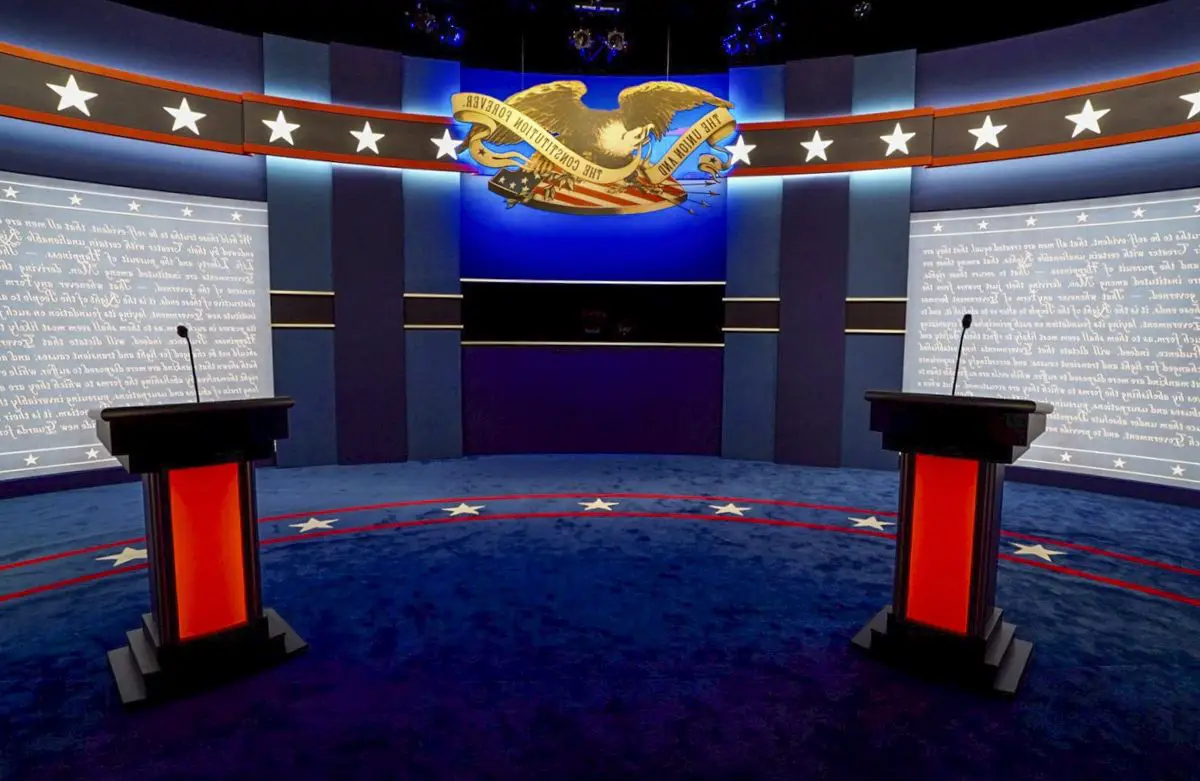Has it come to the point that candidates want to skip debates so often that the practice should become a legal requirement for holding elected office?
It’s the voting public that suffers when candidates avoid an honest debate with their opponent. The reasons vary, of course, for why a candidate might want to skip out, but the end result usually leaves voters with less information and less of a contrast between their choices.
How this would happen is open to interpretation but, for most races, the state government would be in charge of the process. Writing in Politico, David Knight Legg offers up the thought that states should essentially mandate debate participation as part of the process of running for office. You declare as a candidate, file your paperwork, and agree to participate in at least two televised debates with rules pre-established by state law:
Debates are so critical to a healthy democracy that they should be made essentially mandatory for candidates. Here’s how to do it.
First, states should pass bipartisan legislation establishing requirements for debates so they aren’t subject to the fickleness of campaign managers. For elections to the most important statewide positions, like senator or governor, candidates should be made to participate in no fewer than two live broadcast debates before voting begins. Each party could nominate a slate of moderators from which the other party can pick in alternative debates, and questions from the public can be drawn by lottery to ensure fairness.
In the absence of legislation, campaigns that choose to opt out should still be made to pay dearly. TV stations that sponsor debates can continue to hold them and ensure absentee candidates are highlighted by an empty chair with a “will not debate” sign printed beside their name. Attending candidates can have a rigorous prime-time exchange with a fair moderator instead of losing the opportunity to reach people because of another campaign’s refusal to debate.
It’s all a good worthy exercise to debate debates but the process would be open to controversy in and of itself. If state legislatures are in charge, then naturally red states and blue states would craft their debate laws in such a way as to benefit their own side.
Imagine a Republican candidate required to participate in debates under legislation crafted in California or New York. The home-field advantage for the Democrat in the race would be palpable and likely result in a stable of biased moderators or other rules that would disfavor challengers and favor incumbents. The same could probably be said in Texas for a Democratic candidate.
It’s annoying and bothersome to see candidates skipping out on debates when the voters deserve better. We highlighted several Democratic candidates refusing to debate this year because they felt their opponents weren’t worthy of their presence on stage.
Ultimately, when a candidate refuses to debate, they’re risking damage to themselves with that decision. They simply have gambled that participating in the debate might damage them more than not participating.
Compulsory debate participation sounds interesting on the surface but if it’s regulated by the government, whether state or federal, it takes on a form of coercion. Imagine, for example, a scenario where the government decides a candidate is “too dangerous” to air their views on live television so they cancel their own mandated debates. What happens then? Are their lawsuits? Given the way media and tech companies often censor speech they dislike, the vast majority of which affects the conservative side, there’s a clear open door for government censorship if the government doesn’t like what a candidate is saying.
Candidates skipping out on debates is a problem. The answer to the problem isn’t government-mandate debates, it’s voter outrage instead.
Election Day is when voters render a verdict on whether a candidate damaged themselves by choosing to avoid a debate. Anything more than that opens a can of worms and expands the power of government to unnecessary levels. Talk about election interference!
Donate Now to Support Election Central
- Help defend independent journalism
- Directly support this website and our efforts
